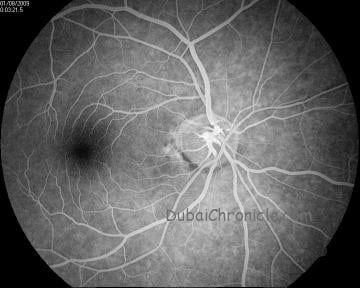
Diabetes is a metabolic disorder in which the body does not produce or properly use insulin, a hormone that allows the body to use blood sugar for energy. It is characterized by high levels of blood sugar, which can cause changes in the blood vessels of the retina, the light-sensitive tissue at the back of the eye that is necessary for good vision.
“DIABETIC RETINOPATHY is the leading cause of new blindness cases among adults aged 20-74” states Prof. Dr. Ayman Shouman, Cataract and Vitreoretinal surgery consultant at Spanish Center Dubai, highlights the danger of Diabetes in harming your vision.
In the early stages of diabetic retinopathy, small blood vessels in the eye swell. As the disease progresses, some vessels that nourish the retina become blocked. Abnormal new blood vessels may begin to grow on the surface of the retina to replace the blocked vessels. The new vessels, however, have thin, fragile walls. If they leak blood, severe vision loss and even blindness can result.
The only way that diabetic retinopathy can be diagnosed is through a comprehensive eye exam. Diabetics are sometimes first diagnosed in an optometrist’s clinic when diabetic retinopathy is discovered.
All people with diabetes, including those with Type I (juvenile onset) and Type II (adult onset), are at risk of developing diabetic retinopathy. The longer you have diabetes, the more likely you are to develop it. There is a genetic component to this disease, as well. If your grandmother had diabetic retinopathy, for example, your risk is higher.
In order to prevent vision loss, early diagnosis and aggressive treatment of diabetic retinopathy are essential. The risk of blindness can be reduced by 90% with timely treatment and follow- up care. Vision that has already been lost, however, cannot be restored.
During the early stages of the disease, no treatment is needed. As the disease advances, doctors at Spanish Center Dubai recommend the following treatment options:
Laser surgery. Laser surgery has been successful in sealing blood vessels to stop them from leaking, and in shrinking abnormal vessels. Generally, laser surgery is used to stabilize vision, not necessarily to improve it. Al received treatment early enough that only minimal vision loss had occurred.
Intraocular injection. This new treatment helps reduce the amount of fluid leaking into the retina, which improves vision. It may need to be repeated or combined with laser therapy to achieve a lasting effect.




































